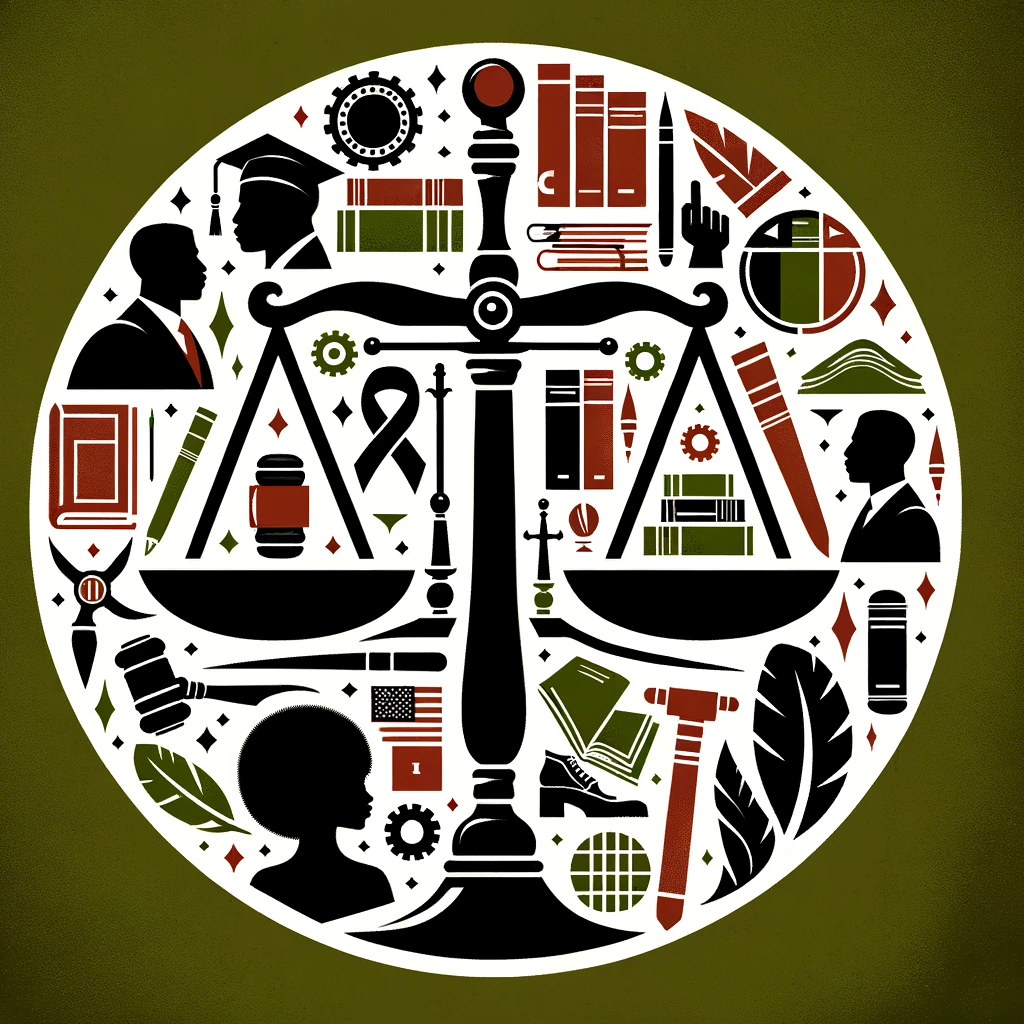
The fight for civil rights and justice in America
It has been shaped by the phenomenal spirit and intellectual prowess of African American legal pioneers. As we celebrate Black History Month, GOLDLAW will spotlight the extraordinary contributions of these heroes/heroines of the legal arena. From the historic Supreme Court victories and decisions of Thurgood Marshall to the trailblazing career of Constance Baker Motley, these pioneers have broken barriers and set new precedents that continue to influence the legal profession and civil rights advocacy. Their stories, rich with perseverance, innovation, and triumph, not only enrich our understanding of Black history, but also challenge us to continue the work they began.
Thurgood Marshall
Born in Baltimore in 1908, Marshall was an American civil rights lawyer and jurist who served as an Associate Justice of the U.S. Supreme Court from 1967 – 1991. A graduate of Howard University Law School, prior to his judicial service, he was an attorney who fought for civil rights, leading the NAACP Legal Defense and Educational Fund. He won 29 of the 32 civil rights cases he argued before the Supreme Court, culminating in the Court’s landmark 1954 decision in Brown v. Board of Education. He was appointed to the Supreme Court by President Lyndon B. Johnson in 1967. Here’s a short recap of some of his greatest achievements:
1. Brown v. Board of Education of Topeka (1954)
As an attorney for the NAACP, Marshall successfully argued before the Supreme Court that racial segregation in public schools was unconstitutional, leading to a landmark ruling. This decision overturned the “separate but equal” doctrine established in Plessy v. Ferguson (1896) and was a crucial victory in the fight against racial discrimination.
2. Establishing the Legal Basis for the Civil Rights Movement
Through his work with the NAACP Legal Defense and Educational Fund, Marshall was instrumental in challenging racial segregation and discrimination in many areas of American life, including voting rights, housing, and education. His legal victories in cases like Shelley v. Kraemer (1948), which ruled that courts could not enforce racial covenants on real estate, laid the groundwork for the civil rights movement.
3. Smith v. Allwright (1944)
Marshall won this Supreme Court case, which struck down the practice of “white primaries” conducted by the Democratic Party in the South. The ruling declared that denying Black Americans the right to vote in primary elections was unconstitutional, marking a significant victory for voting rights.
4. McLaurin v. Oklahoma State Regents (1950)
Here, Marshall successfully challenged the University of Oklahoma’s policy of segregating black graduate students from white peers. The Supreme Court ruled that such segregation violated the equal protection cluse of the 14th Amendment, signaling another step towards, the desegregation of American Education.
5. Championing Civil rights and Liberties as a Supreme Court Justice
During his tenure on the Supreme Court from 1967 to 1991, Marshall was known for his passionate defense of individual rights and his commitment to equality under the law. He consistently supported affirmative action, opposed the death penalty, and fought for women’s rights, among other issues.
Thurgood Marshall’s legacy is characterized by his unwavering dedication to justice and equality, making him a pivotal figure in American legal history. His contributions continue to influence the legal profession and civil right advocacy today.
Constance Baker Motley
Motely was born in New Haven, Connecticut in 1921, to immigrant parents form the Caribbean Island of Nevis. She was a jurist and politician who was a key strategist of the civil rights movement. After graduating from the Columbia Law School in 1948, she was a clerk to Thurgood Marshall, aiding him in the case Brown v. Board of Education. Some of her greatest achievements include the following:
1. She was a Legal Architect for Civil Rights Victories
As a legal strategist of the NAACP Legal Defense and Educational Fund, Motely was instrumental in drafting the original complaint in the landmark case Brown v. Board of Education (1954), which led to the Supreme Court’s decision declaring school segregation unconstitutional.
2. First African American Woman to Argue before the U.S. Supreme Court
Motely shattered gender and color barriers by becoming the first African American women to argue a case before the Supreme Court. Over her career, she won 9 out of the 10 cases she argued before the Court, significantly impacting the civil rights movement.
3. First African American Women to Serve in the New York State Senate
In 1964, Motely was elected as the first African American woman to the New York State Senate, where she continued her advocacy for civil rights, education, and social welfare reforms.
4. First African American Women to Serve on the Federal Bench
In 1966, President Lyndon. B. Johnson appointed Motely to the U.S. District Court for the Southern District of New York, making her the first African American Woman to serve as a federal judge. Her appointment was a monumental step forward for representation in the judiciary.
5. Significant Rulings as a Federal Judge
Throughout her tenure on the bench (1966 – 2005), Motley made several important rulings. Notably, she ruled in favor of the press is the case involving the New York Times’ right to publish the Pentagon Papers. She also made significant rulings in cases involving civil rights, gender discrimination, and worker’s rights.
Constance Baker Motley’s groundbreaking achievements not only challenged the status quo, but also paved the way for future generations of women and people in law and public service. Her legacy endures as a testament to her profound impact on American society and its legal system.



